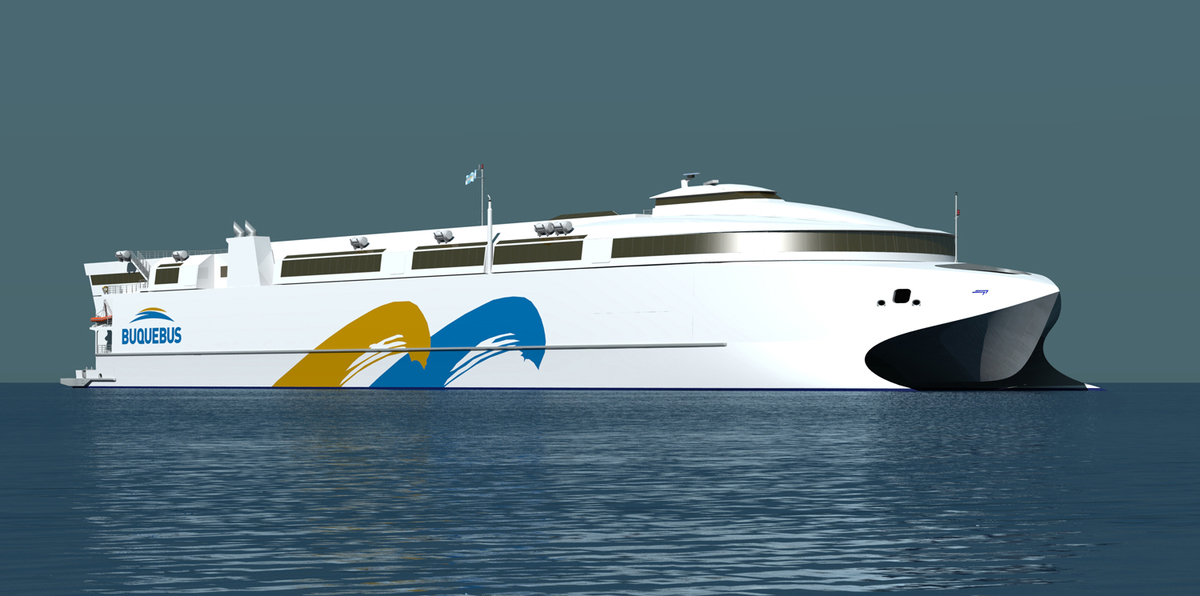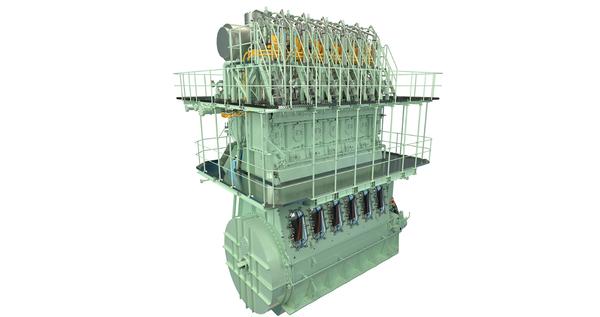Wärtsilä and Corvus Energy will power 130-metre electric ferry
Wärtsilä and Corvus Energy will provide a battery electric propulsion system and waterjet technology for the “world’s biggest” zero-emission ferry.
 PHOTO: Tasmanian shipbuilder Incat is building a 130-m lightweight battery-electric ship for Uruguyan ferry operator, Buquebus. Incat Tasmania
PHOTO: Tasmanian shipbuilder Incat is building a 130-m lightweight battery-electric ship for Uruguyan ferry operator, Buquebus. Incat Tasmania
Uruguayan ferry operator Buquebús has ordered a fully electric, lightweight catamaran ferry from Tasmania-based shipbuilder Incat.
“With an overall length of 130 metres, the ferry will be the largest ever vessel of its type,” said Finnish marine engine manufacturer Wärtsilä.
The vessel will be powered by eight battery-powered electric motors coupled with Wartsila's waterjet technology. Waterjet technology uses a high-pressure water jet to generate thrust for the vessel and is more efficient than traditional propellers.
Norwegian marine tech firm Corvus Energy will supply the battery modules to power the vessel’s electric operations. The 40-megawatt hours (MWh) battery module is low-weight and provides flexible installation with the potential to scale up the capacity and voltage depending on vessel requirements, Corvus Energy explained.
Lightweight batteries can reduce the overall weight of the boat, thus giving higher energy efficiency. It will also pave way for more cargo and passenger space on the ferry.
“The battery modules and energy storage system package is four times larger than on any electric/hybrid ship currently operating,” Wärtsilä added.
“The battery power pack that we are supplying will be the largest ever supplied with a unique eight waterjet propulsor configuration,” explained the president of Wärtsilä’s Marine Power business, Roger Holm. “The eight e-motor waterjet propulsion configuration is the most efficient available on today’s market for this speed range and type application.”
This is due to its low weight, shallow draft, low maintenance and easy steering, he added.
“The design addresses the market’s needs and requirements by utilising batteries, making it a very viable option for owners and operators looking to increase the sustainability of their fleets,” Robert Clifford, founder of Incat said.
By Konica Bhatt
Please get in touch with comments or additional info to news@engine.online






